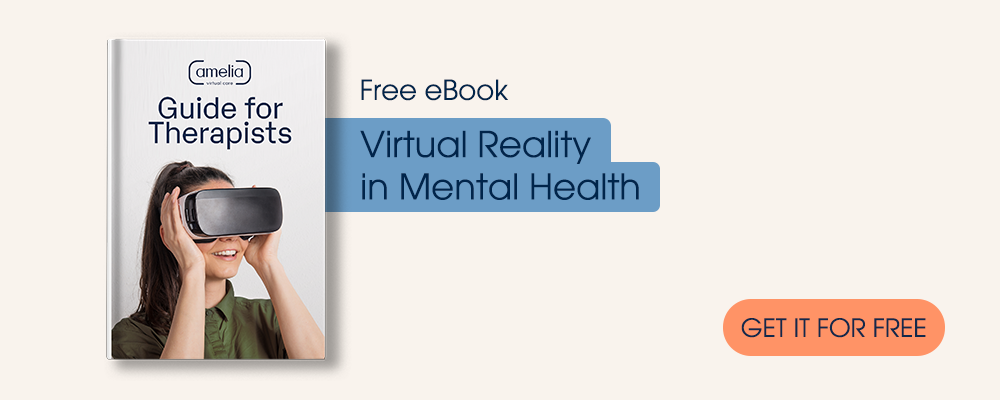If 2020 faced the uncertainty of a new and life-threatening coronavirus worldwide, 2021 bears witness to another problematic scenario: the possible non-widespread uptake of COVID-19 vaccines.Thus far, we have seen many countries receive and administer doses from the different vaccines available, including Johnson&Johnson, Pfizer, Moderna and AstraZeneca. For example, as of April 18th, 2021, 30 countries from the European Union/European Economic Area reported giving 115,837,012 vaccine doses. Despite these figures, the COVID-19 vaccination rollout remains to reach its full potential across many countries. While a significant part of the delay is attributable to a shortage of vaccines and occasional pauses on vaccine administration (due to reports of thrombotic events), another issue plays an overbearing role—psychological fears and doubts. In today’s post, we examine that role in the COVID-19 vaccination program and relay the importance of how specific thoughts or psychological conditions can determine vaccine uptake. To finish, we’ll briefly consider two possible solutions to mitigate these challenges and encourage citizen participation in the vaccine rollout.
What are some of the current perspectives about COVID-19 vaccines?
In the last few decades, vaccines have been a controversial issue worldwide. For instance, for fear that a possible link between vaccines and autism was present, many parents were reluctant about having their children vaccinated for diseases unrelated to COVID-19.Now, with the COVID-19 vaccination program in full motion, we can only imagine the gamut of perspectives held about the coronavirus vaccines.Some are avid supporters of the vaccine, while others display fervent objections. In the latest survey results (mid-February 2021) published by US-based Pew Research Center, approximately 69% of US adults stated they would definitely or probably get a coronavirus vaccine. There is a caveat, though. This figure has not been stable, reaching its peak of 72% in May 2020 and hitting a record low of 51% in September 2020. Additionally, when examined further, this figure does not represent the higher reluctance by certain groups. In the United States, specifically, Black Americans, religious individuals or those with conservative political views were less likely to state their willingness to get a vaccine. While this observance is US-oriented, it stands to reason that extrapolation to other countries with similar sociodemographics is plausible.
In the case of Black Americans, reluctance to participate in the vaccination program is possibly attributable to traumatic events in the US. For instance, the United States Public Health Service (PHS) and the Centers for Disease Control and Prevention (CDC) ran the Tuskegee Study of Untreated Syphilis in the Negro Male to observe the natural history of untreated syphilis in Black Americans. Study participants were not informed of all of the details to provide proper consent, and researchers did not offer adequate treatment, although available, for their disease.
Why should such hesitancy be of great concern?
In September 2020, The Lancet medical journal published a paper entitled “Mapping global trends in vaccine confidence and investigating barriers to vaccine uptake: a large-scale retrospective temporal modelling study”. This breakthrough article was timely, given the foreseen possibility and need for novel vaccines to combat the pandemic. One of the more interesting variables considered was confidence in the importance of the vaccines. According to investigators, confidence in the importance of vaccines had the strongest univariate association with vaccine uptake. In the context of the COVID-19 vaccine rollout, this observance could imply that neither safety nor effectiveness, albeit relevant, carry as much weight as mere faith in the vaccines themselves. This possible ramification warrants attention, given that willingness to get a COVID-19 vaccine was below 70% among the average US adult and varied from one season to the next. Should some groups continue hesitating about vaccinations, areas of vulnerability could remain and leave COVID-19 to continue affecting different societal members. In 2019, the World Health Organization listed vaccine hesitancy as one of the top ten threats to global health.
Is this the only psychological problem related to COVID-19?
No. While vaccine hesitancy or reluctance represents a psychological component in the fight against COVID-19, other conditions can influence vaccine uptake as well. For example, individuals who have trypanophobia (a fear of needles) could avoid getting the vaccine. The sight of a needle approaching can increase anxiety or even induce a panic attack. These individuals require COVID-19 protection, nonetheless.
What then are possible solutions to address these psychological issues as the rollout continues?
On the one hand, in the cases of trypanophobia, virtual reality therapy could prove helpful. This groundbreaking technology has been demonstrated to be as effective as traditional cognitive-behavioral therapy and help reduce anxiety. Furthermore, with the help of Amelia Virtual Care specifically—a virtual reality platform for psychology and mental health—different VR settings for medical procedures are available for therapists. Mental health professionals have virtual environments at their disposal to expose patients to lifelike scenarios while maintaining absolute control of configuration settings. In this sense, therapists can work with patients in a more gradual and personalized manner. Beyond this solution, though, for those who are generally reluctant about getting the vaccine, an effective public health campaign could help quell concerns and build confidence. Such a campaign may include sharing personal experiences from doctors or nurses, or even regular citizens on social media. If the mass public can see that people are getting the vaccine and doing well, and the COVID-19 burden is becoming less and less, well, there can be hope that vaccine uptake will increase and the pandemic will become just another past event written somewhere in history books. Are you interested in learning more about the VR settings for medical procedures? Feel free to contact us! We’d love to set up a demo session with you to explain the different virtual reality environments and how they work.













